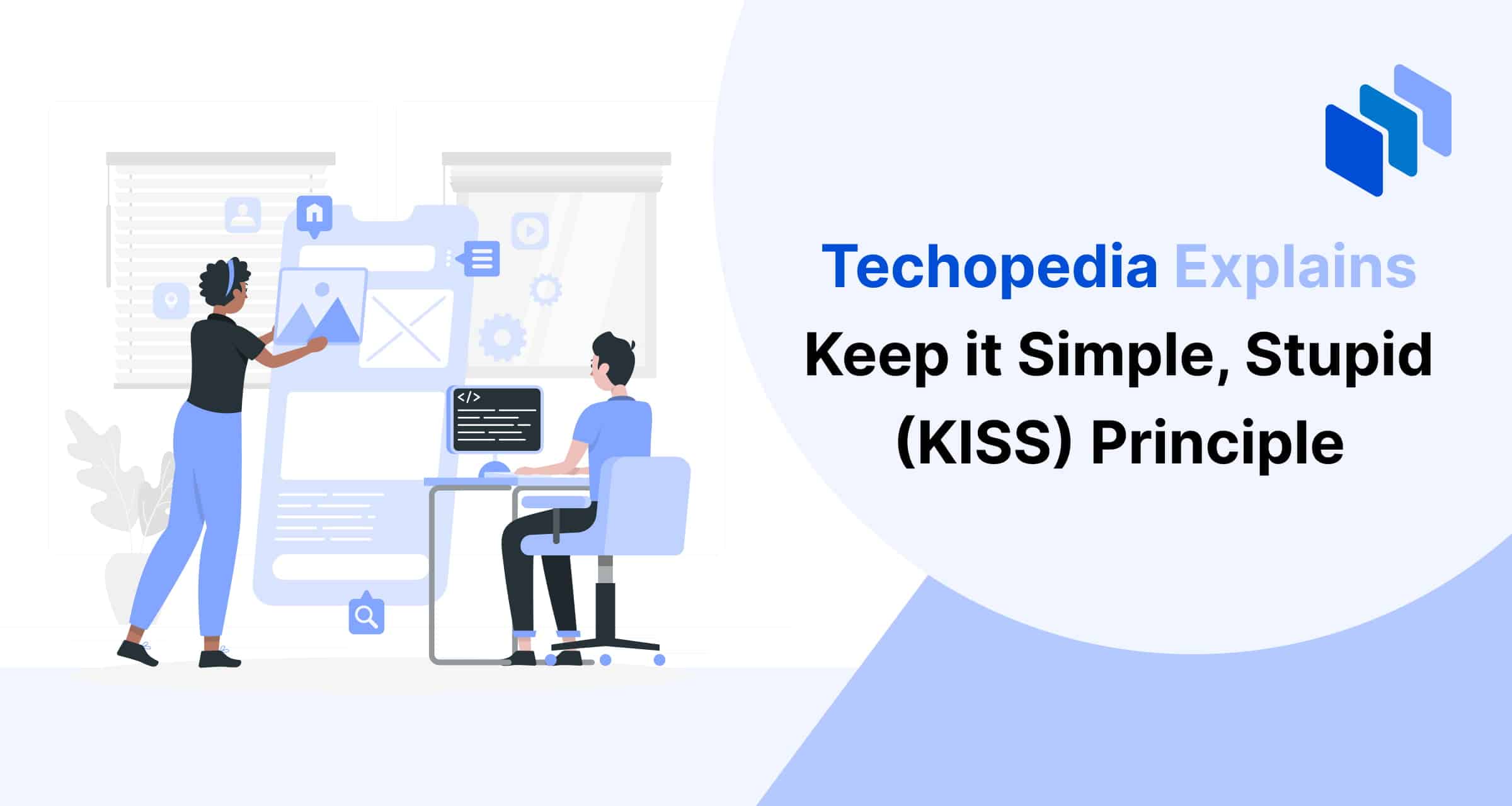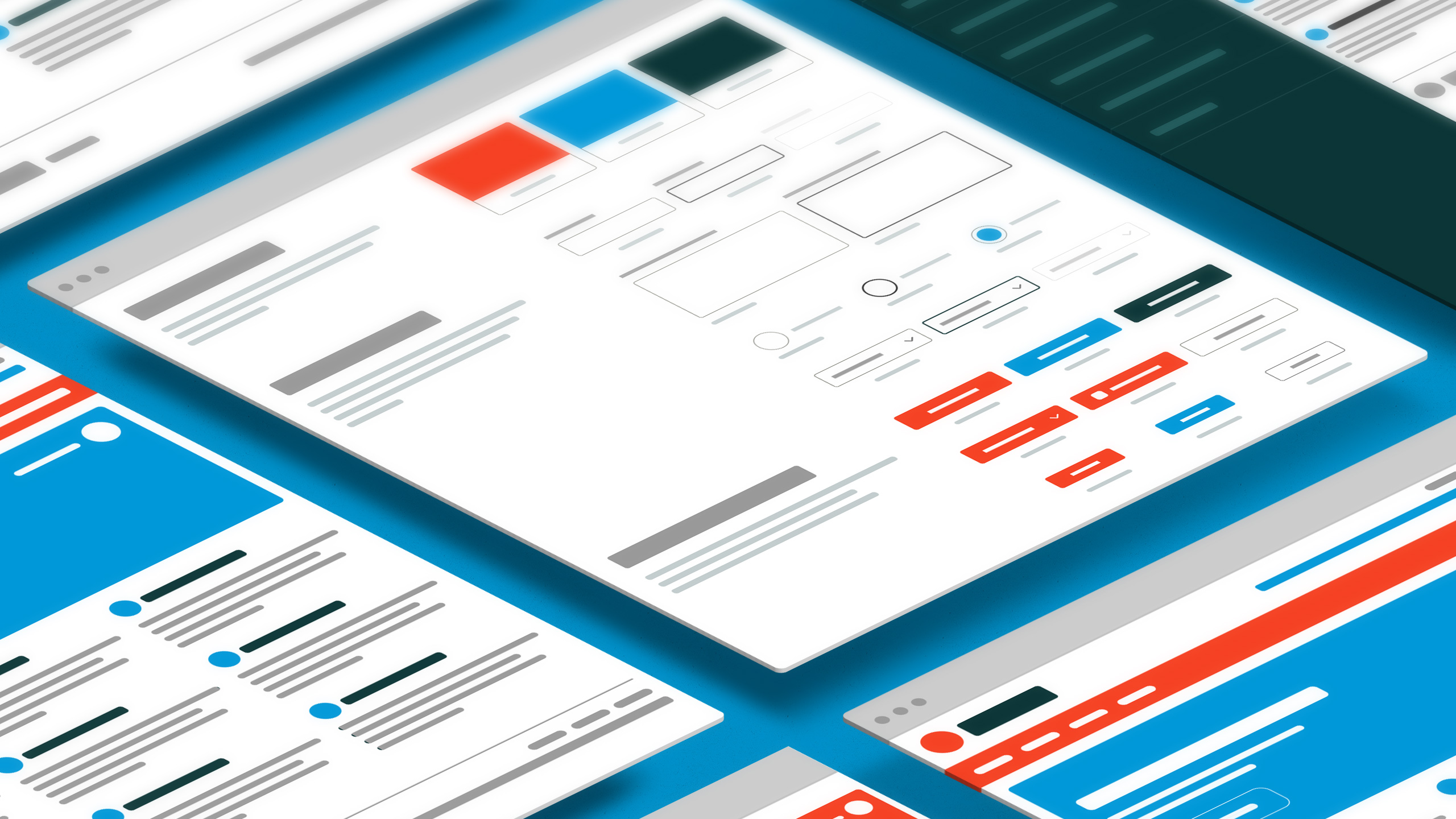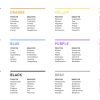
Do you ever find yourself getting lost in a sea of boring logos, wondering how on earth they managed to evoke zero emotion or interest? Fear not, for we are here to rescue you from the monotonous abyss of bland branding! In this article, we will show you the magical art of crafting compelling logos that will make your online presence sing with maximum impact. So grab your glitter glue and sharpen those colored pencils, because it’s time to unleash your inner logo-making wizard!
Choosing the Right Colors and Fonts
When it comes to for your design project, it’s like picking out the perfect outfit for a first date. You want to make a good impression without looking like you tried too hard.
First things first, let’s talk about colors. You don’t want to end up with a mishmash of hues that clash like a bad blind date. Stick to a cohesive color palette that complements each other like peanut butter and jelly. Remember, less is more (unless you’re going for the rainbow unicorn look, then go wild!).
Next up, let’s discuss fonts. Fonts are like personalities – some are bold and in your face, while others are more laid back and chill. Make sure your fonts match the vibe you’re going for. Don’t pair a playful, whimsical font with a serious, corporate design unless you want your project to look like a confusing mix of business and pleasure.
In conclusion, when it comes to , trust your gut (unless your gut is telling you to use Comic Sans – then please, for the love of all that is design, reconsider). Stay true to your vision and remember: a little color and font flair can go a long way in making your project stand out from the rest.
Simplicity is Key
When it comes to living a stress-free life, . Think about it, the less you have to worry about, the more time you have to enjoy the things that truly matter. So why complicate things when you can keep it simple?
One way to embrace simplicity is by decluttering your living space. Get rid of all those unnecessary knick-knacks and old magazines collecting dust. Keep only the essentials and your space will feel more open and inviting. Plus, less stuff means less to clean!
Another way to simplify your life is by streamlining your daily routines. Create a simple morning ritual that sets the tone for your day. Maybe it’s sipping on a cup of coffee while reading your favorite book or going for a quick jog around the neighborhood. Whatever it is, make it a priority to start your day on a positive note.
Remember, it’s the little things in life that bring us the most joy. So why not simplify and focus on what truly matters? Whether it’s spending time with loved ones, pursuing your passions, or simply enjoying a quiet moment of solitude, embrace simplicity and watch how it can transform your life for the better.

Designing for Scalability
When it comes to , it’s crucial to consider all the possibilities and be prepared for anything that comes your way. You never know when your little project might blow up into something huge!
One key aspect of is to **think about the long term**. Sure, your current setup might work just fine for now, but what happens when your user base grows tenfold? Will your design be able to handle it, or will it crumble under the pressure like a house of cards in a hurricane?
Another important factor to consider is **redundancy**. Having backups in place is like having a spare tire in the trunk of your car – you might not need it now, but when disaster strikes, you’ll be glad you have it. Make sure your design can handle failures gracefully and keep on chugging along like a well-oiled machine.
And last but not least, don’t forget about **automation**. Trying to manually scale up your design is like trying to juggle flaming chainsaws – it’s bound to end in disaster. Invest in automation tools to help you scale up your design seamlessly, so you can focus on the more important things, like figuring out how to fit even more features into your already overloaded design.
Ensuring Versatility Across Platforms
When it comes to , one must be as adaptable as a chameleon at a rainbow convention. Whether you’re on a desktop computer, a tablet, or a smartphone, your content needs to be able to shine like a disco ball in a room full of dancing unicorns.
One of the keys to versatility is making sure your content is responsive. No, we’re not talking about answering emails at 3 a.m. (although that wouldn’t hurt). We’re talking about making sure your content looks good on any screen size, from the smallest flip phone to the largest smart TV.
Another important factor to consider is the user experience. Your content should be as easy to navigate as a cruise ship on calm seas. Make sure your menus are clear, your buttons are easy to click, and your forms are as simple to fill out as a grocery list for a single avocado.
But most importantly, remember that versatility is about more than just appearance. Your content should be as flexible as a yoga instructor at a rubber band convention. Make sure it can adapt to different platforms, technologies, and user preferences so that no matter where your audience is coming from, they’ll feel right at home.

Conducting Market Research for Target Audience
So, you want to conduct market research for your target audience, huh? Well, buckle up because it’s about to get wild!
First things first, you need to figure out who exactly your target audience is. Are they millennials who love avocados? Boomers who can’t get enough of their flip phones? Once you’ve pinpointed your demographic, it’s time to dig deep and gather some juicy insights.
One way to get the scoop on your target audience is to hit the streets and do some good ol’ fashioned people-watching. Channel your inner spy and observe your potential customers in their natural habitat. What are they wearing? What are they buying? Are they slipping on banana peels? It’s all valuable information, trust me.
Don’t forget to also utilize online surveys, focus groups, and social media analytics to really get inside the minds of your target audience. Ask the hard-hitting questions like “Do you prefer cats or dogs?” or “How many times have you accidentally walked into a glass door?” The answers may surprise you!
Utilizing Negative Space Effectively
So you’re a designer, huh? You think you know all about utilizing negative space, do you? Well, let me tell you, it’s not just about leaving some blank space on your canvas and calling it a day. No sir, there’s an art to it, a finesse that only the truly skilled possess.
First off, let’s talk about balance. Negative space is all about creating balance in your design, like a delicate dance between light and dark, between presence and absence. It’s like trying to fit a square peg into a round hole, but with more finesse and less frustration.
Next, let’s talk about focus. Negative space is a sneaky little trickster, leading the eye where you want it to go without the viewer even realizing it. It’s like a magician pulling off a sleight of hand right in front of your eyes, and you’re none the wiser.
And finally, let’s talk about impact. When negative space is utilized effectively, it can make your design pop like a bowl of Orville Redenbacher’s in the microwave. It can take a good design and make it great, like adding a dash of hot sauce to your morning eggs.
Testing and Iterating for Optimal Results
When it comes to , think of it like a science experiment, but with less lab coats and more trial and error. You have to be willing to roll up your sleeves and get your hands dirty, metaphorically speaking of course.
One key strategy is to **test, test, test**. Try out different ideas, approaches, and strategies to see what works best. It’s like throwing spaghetti at the wall and seeing what sticks, except hopefully less messy. Don’t be afraid to experiment and think outside the box. After all, some of the best ideas come from moments of sheer madness.
Another important factor is to **listen to feedback**. Whether it’s from customers, colleagues, or your grandma, take in the feedback and use it to improve. Remember, feedback is a gift, even if it comes wrapped in a not-so-pretty package. Embrace it and use it to make your work even better.
And lastly, don’t forget to **iterate like there’s no tomorrow**. Keep refining, tweaking, and adjusting until you reach your desired outcome. It’s like sculpting a masterpiece – it may take time and patience, but the end result will be worth it. So keep testing, keep iterating, and keep striving for those optimal results!
FAQs
How can I make my logo stand out online?
Make your logo unique and eye-catching by using bold colors, interesting fonts, and clever design elements. Don’t be afraid to think outside the box and get creative!
What are some common mistakes to avoid when designing a logo?
Avoid using too many fonts, colors, or design elements – simplicity is key! Also, make sure your logo is scalable and looks good on all devices, from desktop to mobile.
How important is it to have a memorable logo for my online business?
Having a memorable logo is crucial for online success – it helps your brand stand out, build credibility, and make a lasting impression on customers. Plus, a great logo can help attract new customers and keep them coming back for more!
What are some tips for designing a logo that will appeal to my target audience?
Think about your target audience’s preferences, interests, and demographics when designing your logo. Make sure it reflects your brand’s personality and values, and resonates with your ideal customers.
Should I hire a professional designer to create my logo, or can I do it myself?
While it’s possible to create a logo yourself, hiring a professional designer is often a smarter choice. They have the skills, experience, and creative vision to craft a logo that truly captures your brand and makes a powerful impact online.
Don’t settle for a mediocre logo!
Now that you’ve learned the secrets to crafting compelling logos for maximum online impact, go forth and let your creativity flow! Remember, a great logo can make all the difference in the online world, so don’t be afraid to think outside the box and push the boundaries of design. Your brand deserves a logo that truly stands out and captivates your audience, so go ahead and create a masterpiece that will leave a lasting impression. Happy logo crafting!












